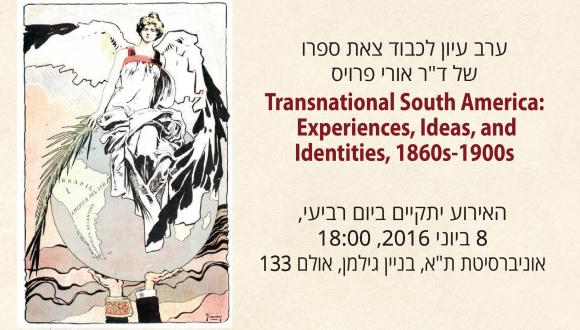Presentación del último libro de Dr. Ori Preuss: Transnational South America
Presentación del último libro de Dr. Ori Preuss: Transnational South America: Experiences, Ideas, and Identities, 1860s-1900s
Presentación del último libro de Dr. Ori Preuss:
Transnational South America: Experiences, Ideas, and Identities, 1860s-1900s
Mark Gamsa, Universidad de Tel Aviv
Arie M. Kacowicz, Universidad Hebrea de Jerusalén
Palabras de clausura y agradecimiento:
Ori Preuss, Universidad de Tel Aviv
At the crossroad of intellectual, diplomatic, and cultural history, this book examines the growing transnational fows of people, information, and ideas between South American cities—mainly the port-capitals of Buenos Aires and Rio de Janeiro—during the period of their modernization. The book reconstructs this largely overlooked trend toward connectedness both as an objective process and as an assemblage of visions and policies concen-trating on diverse transnational practices such as translation, travel, public visits and conferences, the print press, cultural diplomacy, intertextuality, and institutional and personal contacts. Inspired by the entangled history approach and the spatial turn in the humanities, the book highlights the importance of cross-border exchanges within the South American conti-nent. It thus offers a correction to two major traditions in the historiog-raphy of ideas and identities in modern Latin America: the predominance of the nation-state as the main unit of analysis, and the concentration on relationships with Europe and the United States as the main axis of cultural exchange. Modernization, it is argued, brought segments of South Amer-ica’s capital cities not only close to Paris, London, and New York, as is commonly claimed, but also to one another both physically and mentally, creating and recreating spaces, ways of thinking, and cultural-political proj-ects at the national and regional levels.


